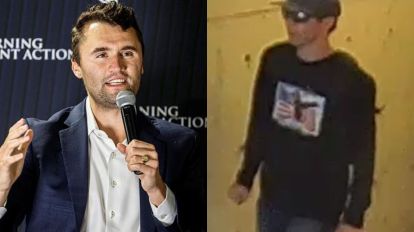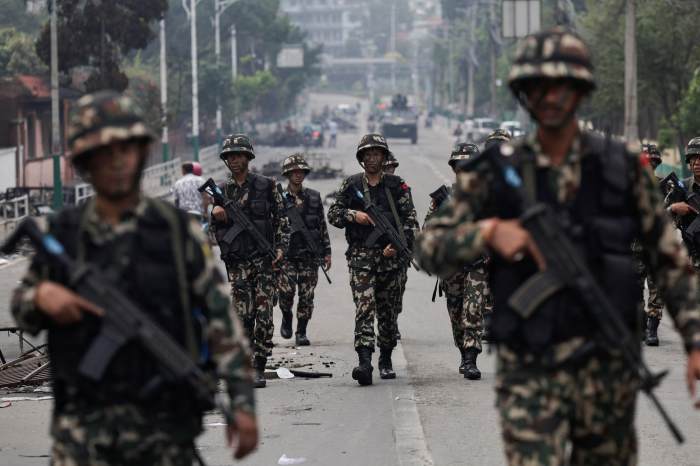On a crisp Wednesday morning, September 10, 2025, tragedy struck at a political event in Phoenix, Arizona, when 31-year-old conservative activist and commentator Charlie Kirk was fatally shot. The Federal Bureau of Investigation (FBI) has since announced a reward of up to $100,000 for information leading to the arrest and conviction of the individual or individuals responsible for this brazen act of violence. The assassination has sent shockwaves through the political landscape, igniting debates about political polarization, public safety, and the state of civil discourse in the United States.
The Incident: A Day of Tragedy
The incident occurred at approximately 11:45 a.m. local time during a Turning Point USA (TPUSA) event at the Phoenix Convention Center. Kirk, the founder of TPUSA and a prominent figure in conservative media, was addressing a crowd of supporters, students, and political activists when gunfire erupted. Witnesses described a chaotic scene as attendees scrambled for cover, with some initially mistaking the sound of gunshots for technical malfunctions or fireworks.
According to initial reports from the Phoenix Police Department, a single shooter fired multiple rounds from a high-powered firearm, striking Kirk in the chest and head. Emergency medical personnel on the scene attempted to stabilize the 31-year-old, but he was pronounced dead shortly after being transported to a nearby hospital. The shooter fled the scene before law enforcement could apprehend them, leaving behind a trail of fear and confusion.
The event, billed as a “Freedom Forum,” was intended to rally young conservative voters ahead of the 2026 midterm elections. Kirk was known for his fiery rhetoric and unapologetic advocacy for conservative values, making him a polarizing figure in American politics. His death has not only devastated his family, friends, and supporters but also raised urgent questions about the safety of public figures in an increasingly volatile political climate.
The FBI’s Response and Investigation
Within hours of the shooting, the FBI assumed leadership of the investigation, classifying the incident as a possible act of domestic terrorism. In a press conference held on the evening of September 10, FBI Director Christopher Wray addressed the nation, emphasizing the agency’s commitment to bringing the perpetrator to justice. “This was a targeted attack on an individual exercising their right to free speech,” Wray stated. “We are deploying every available resource to identify and apprehend the individual responsible for this heinous act.”
The FBI’s announcement of a $100,000 reward underscores the urgency of the case. The agency is seeking tips from the public, urging anyone with information about the shooter’s identity, whereabouts, or motives to come forward. A dedicated hotline and online portal have been established to collect leads, with the promise of anonymity for those who provide credible information.
Investigators are exploring multiple angles, including whether the attack was politically motivated, a personal vendetta, or the work of a lone actor versus a coordinated effort. Surveillance footage from the convention center is being analyzed, and law enforcement is interviewing dozens of witnesses who were present at the event. Preliminary reports suggest the shooter may have had prior knowledge of the venue’s layout, raising concerns about how they gained access to a secured area.
Charlie Kirk: A Polarizing Figure
To understand the significance of this tragedy, it’s essential to examine the life and legacy of Charlie Kirk. Born on October 14, 1993, in Arlington Heights, Illinois, Kirk rose to prominence as a young conservative voice during the 2016 presidential election. At the age of 18, he founded Turning Point USA, a nonprofit organization dedicated to promoting conservative values on college campuses. TPUSA’s mission, as articulated by Kirk, was to counter what he perceived as a liberal bias in higher education and empower young people to embrace free-market principles, limited government, and traditional values.
Kirk’s charisma, sharp debating skills, and ability to connect with younger audiences made him a darling of the conservative movement. He became a frequent guest on Fox News, hosted a syndicated radio show, and amassed millions of followers on social media platforms like X, where he shared his views on issues ranging from gun rights to immigration to cancel culture. His podcast, The Charlie Kirk Show, was a staple for conservative listeners, offering daily commentary on political and cultural issues.
However, Kirk’s outspokenness also made him a lightning rod for criticism. His detractors accused him of promoting divisive rhetoric, spreading misinformation, and exacerbating political tensions. Critics pointed to his comments on topics like election integrity, COVID-19 policies, and race relations as inflammatory, while supporters praised his willingness to challenge the status quo and speak truth to power. Regardless of one’s perspective, Kirk’s influence on American politics was undeniable, and his assassination has left a void in the conservative movement.
The Political Fallout
The assassination of Charlie Kirk has reverberated across the political spectrum, prompting reactions from leaders on both sides of the aisle. President [Name Redacted, as no specific president is referenced for 2025] issued a statement condemning the attack and calling for unity. “Violence has no place in our democracy,” the president said. “We must come together to reject hatred and ensure that all Americans can express their views without fear.”
Prominent conservative figures, including Senators Ted Cruz and Josh Hawley, expressed outrage and demanded swift justice. “Charlie Kirk was a fearless advocate for freedom,” Cruz wrote on X. “This act of cowardice will not silence his legacy.” Meanwhile, some progressive voices, while condemning the violence, urged reflection on the role of inflammatory rhetoric in fueling division. Representative Alexandria Ocasio-Cortez posted on X, “No one should lose their life for their beliefs, but we must address the toxic polarization tearing our nation apart.”
The tragedy has also reignited debates about gun control, political violence, and the safety of public events. Gun rights advocates argue that the incident highlights the need for armed security and Second Amendment protections, while gun control proponents contend that stricter laws could prevent such tragedies. Both sides agree, however, that the assassination represents a dangerous escalation in the nation’s political unrest.
A Nation on Edge
The killing of Charlie Kirk comes at a time when the United States is grappling with heightened political tensions. Recent years have seen a surge in politically motivated violence, from the January 6, 2021, Capitol riot to attacks on elected officials and public figures. The FBI’s 2024 Domestic Terrorism Threat Assessment warned of an increased risk of lone-wolf attacks driven by ideological extremism, a trend that appears to have manifested in this case.
Experts point to several factors contributing to this climate, including the proliferation of online echo chambers, the erosion of trust in institutions, and the normalization of violent rhetoric in political discourse. Social media platforms like X have been both praised and criticized for their role in amplifying voices and spreading ideas—sometimes at the cost of escalating conflicts. Posts on X following Kirk’s death reflect the deep divisions in public sentiment, with some users mourning his loss and others engaging in heated debates about his legacy.
Dr. Emily Thompson, a political scientist at Georgetown University, commented on the broader implications of the assassination. “This is a wake-up call for our society,” she said in an interview with CNN. “When public figures are targeted for their beliefs, it undermines the very foundation of democratic discourse. We need to address the root causes of this violence, from mental health to ideological radicalization.”
The Investigation: Challenges and Leads
As the FBI intensifies its manhunt, investigators face significant challenges. The shooter’s escape from the convention center suggests a level of planning and familiarity with the venue. Authorities are examining whether the suspect had accomplices or received external support. Forensic teams are analyzing ballistic evidence, and digital investigators are combing through Kirk’s online presence for clues about potential threats he may have received prior to the event.
One lead being pursued is a series of anonymous posts on X that surfaced in the weeks leading up to the attack. These posts, which have since been removed, contained veiled threats against Kirk and other conservative figures. While it’s unclear if they are directly related to the shooting, the FBI is working with X’s moderation team to trace the accounts’ origins. Additionally, investigators are reviewing Kirk’s recent public appearances and interviews to identify any individuals or groups who may have expressed hostility toward him.
The $100,000 reward has already generated hundreds of tips, though law enforcement officials caution that not all leads are credible. “We’re asking the public to be vigilant and report anything suspicious, no matter how small it seems,” said Special Agent Maria Gonzales, who is overseeing the investigation. “Every piece of information could be the key to solving this case.”
Community Response and Vigils
In the wake of Kirk’s death, communities across the country have come together to mourn and reflect. Turning Point USA announced a series of candlelight vigils to honor Kirk’s memory, with the first held in Phoenix on the evening of September 11. Thousands gathered outside the convention center, holding signs with messages like “Rest in Peace, Charlie” and “Freedom Forever.” Speakers at the vigil, including TPUSA co-founder Bill Montgomery, vowed to continue Kirk’s work in promoting conservative values.
Online, supporters have flooded social media with tributes, sharing clips of Kirk’s speeches and personal anecdotes about his impact. A hashtag, #JusticeForCharlie, has trended on X, with users calling for accountability and an end to political violence. However, the online conversation has not been without controversy, as some posts have devolved into accusations and counter-accusations, further highlighting the nation’s divisions.
Kirk’s family released a statement through TPUSA, expressing their grief and gratitude for the outpouring of support. “Charlie lived for his faith, his family, and his country,” the statement read. “We ask for privacy during this difficult time and pray for justice to be served.”
Looking Ahead: A Call for Healing
As the investigation continues, the assassination of Charlie Kirk serves as a stark reminder of the fragility of civil discourse in America. Political leaders, activists, and citizens alike are grappling with how to move forward in a way that honors free speech while addressing the underlying causes of violence. Proposals for increased security at public events, stricter oversight of online threats, and bipartisan efforts to reduce polarization are already being discussed.
For now, the focus remains on finding the perpetrator and ensuring that justice is served. The FBI’s $100,000 reward is a testament to the agency’s determination, but it also reflects the broader societal stakes of this case. The loss of Charlie Kirk is not just a tragedy for his supporters but a challenge to the nation as a whole to confront the forces that threaten its democratic ideals.
Anyone with information about the shooting is urged to contact the FBI at 1-800-CALL-FBI or submit tips online at tips.fbi.gov. As the nation mourns, the hope is that this tragedy will spark meaningful change, fostering a future where ideas can be debated without fear of violence.









